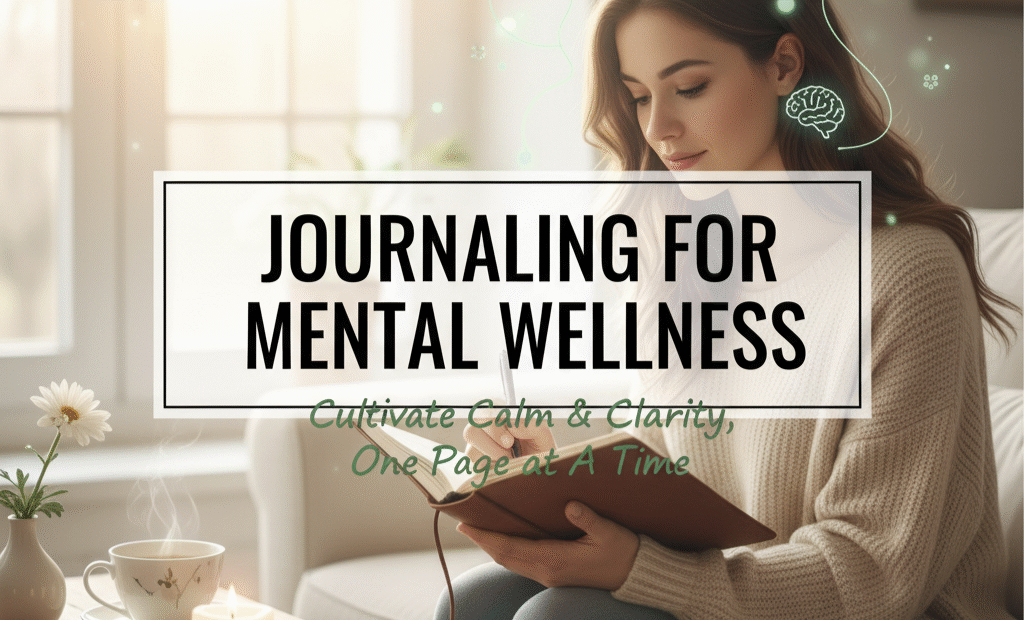Journaling for Mental Wellness
In a world full of distractions, stress, and constant activity, journaling has emerged as one of the simplest yet most powerful tools for improving mental wellness. Writing down your thoughts and feelings helps clear your mind, process emotions, and promote self-awareness. It’s a private, safe space where you can express yourself honestly and reflect on your personal growth.
Why Journaling Is Good for Your Mental Health
Journaling is more than just keeping a diary. It’s a therapeutic practice that allows you to connect with your inner self, manage stress, and find clarity. Scientific studies have shown that expressive writing can reduce symptoms of anxiety and depression, improve mood, and even boost your immune system.
Key Benefits of Journaling
- Emotional release: Writing about your thoughts helps release built-up emotions, reducing tension and mental clutter.
- Improved self-awareness: Journaling helps you recognize patterns in your thoughts and behaviors, leading to personal insight.
- Better stress management: Writing provides an outlet for worries, helping you handle challenges with a clearer mind.
- Enhanced focus and motivation: Setting goals and tracking progress through journaling can keep you accountable and motivated.
- Improved sleep: Writing before bed helps calm your mind, reducing overthinking and nighttime anxiety.
Different Types of Journaling for Mental Wellness
There’s no single “right” way to journal — choose a method that fits your personality and goals. Here are some popular approaches you can try.
1. Gratitude Journaling
Write down three to five things you’re grateful for each day. This shifts your focus from stress and negativity to positivity and appreciation. Over time, gratitude journaling can rewire your brain to notice the good things in life more often.
2. Reflective Journaling
At the end of the day, write about your experiences, thoughts, and feelings. Reflect on what went well, what challenged you, and what you learned. This type of journaling promotes emotional growth and mindfulness.
3. Goal-Oriented Journaling
Use your journal to set short-term and long-term goals. Write about your plans, progress, and obstacles. Seeing your goals on paper can increase motivation and help you stay focused on what truly matters.
4. Bullet Journaling
Bullet journaling combines creativity with organization. It includes lists, trackers, and short notes, helping you manage time and reduce stress. It’s a great way to balance productivity with mindfulness.
5. Free Writing
Also known as “stream of consciousness,” this method involves writing whatever comes to mind without worrying about grammar or structure. Free writing helps you release emotions and uncover hidden thoughts.
How to Start a Journaling Habit
- Set a routine: Write at the same time every day — morning or night works best.
- Use pen and paper: Writing by hand deepens the mind-body connection and enhances reflection.
- Keep it private: Your journal is for you, so write honestly without fear of judgment.
- Start small: Even five minutes a day can make a difference.
- Be consistent: Journaling becomes more effective the longer you stick with it.
Journaling Prompts to Try
- What made me feel happy or calm today?
- What challenges did I face, and how did I handle them?
- What am I grateful for right now?
- What goals do I want to focus on this week?
- How can I be kinder to myself?
Conclusion
Journaling for mental wellness is a simple but transformative habit. By putting your thoughts on paper, you create space for healing, reflection, and growth. Whether you write about gratitude, goals, or everyday feelings, journaling helps you understand yourself better and live more mindfully. Start today — your notebook might just become your most powerful tool for emotional well-being.









